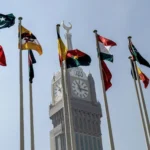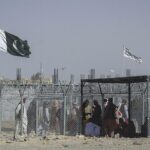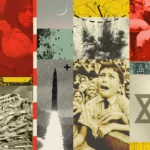Beirut, Lebanon – While Indian Prime Minister Narendra Modi extended his congratulations to Baselios Joseph I, the newly consecrated Catholicos of the Jacobite Syrian Christian Church in Beirut, back home, the Christian community faces an escalating wave of violence and persecution.
With over 800 attacks recorded against Christians in India in 2024 alone, rights groups warn that religious minorities are facing unprecedented levels of suppression under Modi’s Hindu nationalist government.
A delegation of Indian officials, led by former Union Minister K J Alphons, attended the consecration ceremony in Lebanon, where Modi’s letter was read out. However, Christian leaders in India are voicing growing concerns over the state’s inaction in addressing targeted violence against the community.
Churches Attacked, Worship Criminalized
According to reports from rights organizations, 161 churches have been attacked this year, with services forcibly halted under the pretext of anti-conversion laws. Pastors have been arrested, prayer meetings raided, and religious gatherings disrupted, as hardline Hindu groups push forward an agenda that critics say erodes India’s secular foundations.
“The government is complicit in allowing these attacks to continue,” a Christian rights activist told Al Jazeera, citing how false accusations of forced conversions have surged under India’s anti-conversion laws. These laws, in effect across multiple states, have become a tool to target and harass Christians, with no legal protection offered to victims.
Silence from the State
Despite repeated appeals from Christian leaders, President Droupadi Murmu has not responded to calls for intervention. Civil society groups have also raised concerns about genocidal rhetoric increasingly being used by Hindu nationalist groups, with threats against minorities made publicly.
India has a long history of anti-Christian violence, from the 1950 riots to the 2008 Kandhamal massacre that left 50,000 displaced. The trend has accelerated under Modi’s leadership, with rights groups warning that Hindutva ideology is no longer fringe, but state-backed policy.
Also See: Hindutva: India’s Dangerous Export to the World
International Concerns Grow
The alarming surge in religious persecution has drawn international attention, with human rights organizations calling for urgent action. Reports indicate that between 2019 and 2020 alone, over 300 attacks against Christians were recorded, while recent violence in Manipur, Odisha, and Gujarat highlights the increasing vulnerability of religious minorities.
Despite India’s claims of being a secular democracy, critics argue that Modi’s government has normalized religious intolerance, allowing Hindu nationalist groups to operate with impunity.
As attacks continue to rise, the question remains: Will the Indian government act to protect its Christian minority, or will silence prevail as religious freedoms erode?
This news has been compiled for informational purposes based on available data from official sources, eyewitness accounts, and publicly accessible information. Further developments will be reported as they emerge.

![deccanherald_2025-02-12_8gxoemcr_file7zbn3w0b8kj1egk2eks4 Indian Christian community faces rising violence while Modi congratulates new Jacobite Catholicos in Lebanon. Rights groups sound alarm. [Image via Reuters]](https://southasiatimes.org/wp-content/uploads/elementor/thumbs/deccanherald_2025-02-12_8gxoemcr_file7zbn3w0b8kj1egk2eks4-r3h66x24ezpmyyhbx6sl31owxr8lxic3e81ded3e6g.webp)




